








As Procurement Lead at Rohloff Group, one of Africa’s largest KFC franchisees, Louise Erasmus plays a pivotal role in ensuring operational continuity, cost efficiency, and brand consistency across nearly 100 stores. In this interview, she shares her career journey, the digital tools shaping their success, and how her team balances innovation, compliance, and sustainability in one of the most demanding sectors of retail.


Can you share your career journey and what led you to your current role as Head of Procurement at Rohloff Group? What key experiences have shaped your approach to procurement and sourcing?
My journey into procurement wasn’t traditional, it was built on tenacity, a passion for operations, and the grit to grow from the ground up. I started my career in finance and admin, first working as a Financial Assistant at BHP Billiton’s Optimum Colliery, and later transitioning into a Contracts Coordinator role after the acquisition by Optimum Coal Holdings. That period was foundational, I was deeply involved in SAP implementation, GRIR account resolution, contractor management, tendering, and strategic contract oversight. By 2010, I was acting as Contract Superintendent, managing over 35 strategic contracts, leading adjudications, and ensuring full compliance through SOPs and SLAs.
Following my time in mining, I worked in finance and HR roles at ECS and later as Credit Manager and Client Liaison at Steve Tshwete Housing, managing social housing placements, tenant approvals, financial reporting, and team leadership. Each of these experiences gave me a deep understanding of people, systems, and the importance of trust and clear processes.
In 2016, I joined the Rohloff Group as a Debtors/Creditors Administrator. I saw this not as a step back, but as a foot in the door of a growing company with purpose. I worked my way up, from overseeing reconciliations and payments to becoming Assistant Supervisor, and ultimately taking the reins as Head of Procurement. Today, I lead a dynamic team supporting around many KFC stores across South Africa.
Our scope now includes everything from daily OPEX procurement to asset management, new store builds, remodels, and running a full-scale warehouse and logistics operation. We’ve taken over distribution, launched proactive maintenance strategies through systems like Infraspeak, and achieved major savings on new builds and remodels. I’ve also been part of building a new company structure for supply chain and operations services that will scale nationally.
What shaped me? Starting from the bottom, learning through every role, and never shying away from complexity. I’ve seen how procurement, when done right, is about more than price, it ’s about partnership, integrity, and long-term operational excellence.
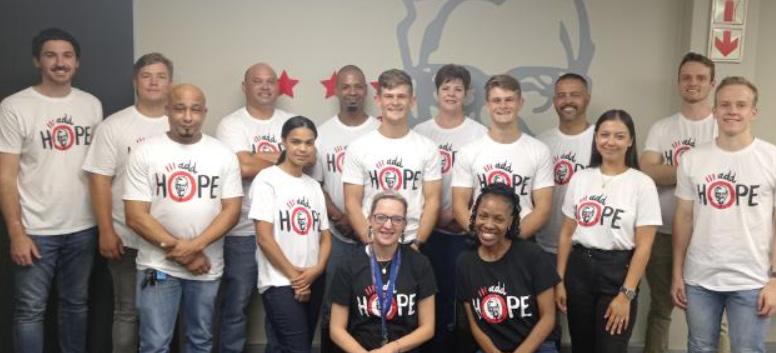
Rohloff Group is one of the largest KFC franchisees in Africa, emphasising a high-performance culture focused on customer satisfaction. How does the procurement function support these objectives, particularly in day-to-day operations and strategic initiatives?
At the Rohloff Group, procurement is not a back-office function, it’s a strategic partner in driving our high-performance culture and ensuring exceptional customer experience across all our KFC restaurants. As one of the largest KFC franchisees in Africa, consistency, speed, and quality are nonnegotiables. Procurement plays a central role in achieving this by securing reliable supply chains, standardising materials, and ensuring that every store, from Cape Town to Bloemfontein, has the same access to quality products, services, and support.
We don’t just buy, we build partnerships with suppliers. We negotiate fixed-rate contracts to protect stores from cost fluctuations, set clear service level agreements (SLAs), and monitor performance closely. Our team has implemented proactive maintenance schedules using Infraspeak to reduce downtime on critical equipment, improving operational uptime and customer satisfaction. Through our warehouse and logistics arm, we’ve taken full control of distribution, allowing us to consolidate deliveries, reduce lead times, and maintain full traceability of parts, spares, and smallwares. This centralisation has helped us eliminate inconsistencies and cut delays, especially on project rollouts like remodels, new builds, and kiosk implementations.
Ultimately, procurement supports the franchise’s objectives by being solutions-driven, data-led, and deeply aligned with operational needs. We are constantly evolving, looking at ways to drive savings without compromising on quality, and enabling the business to scale confidently without losing its brand promise.
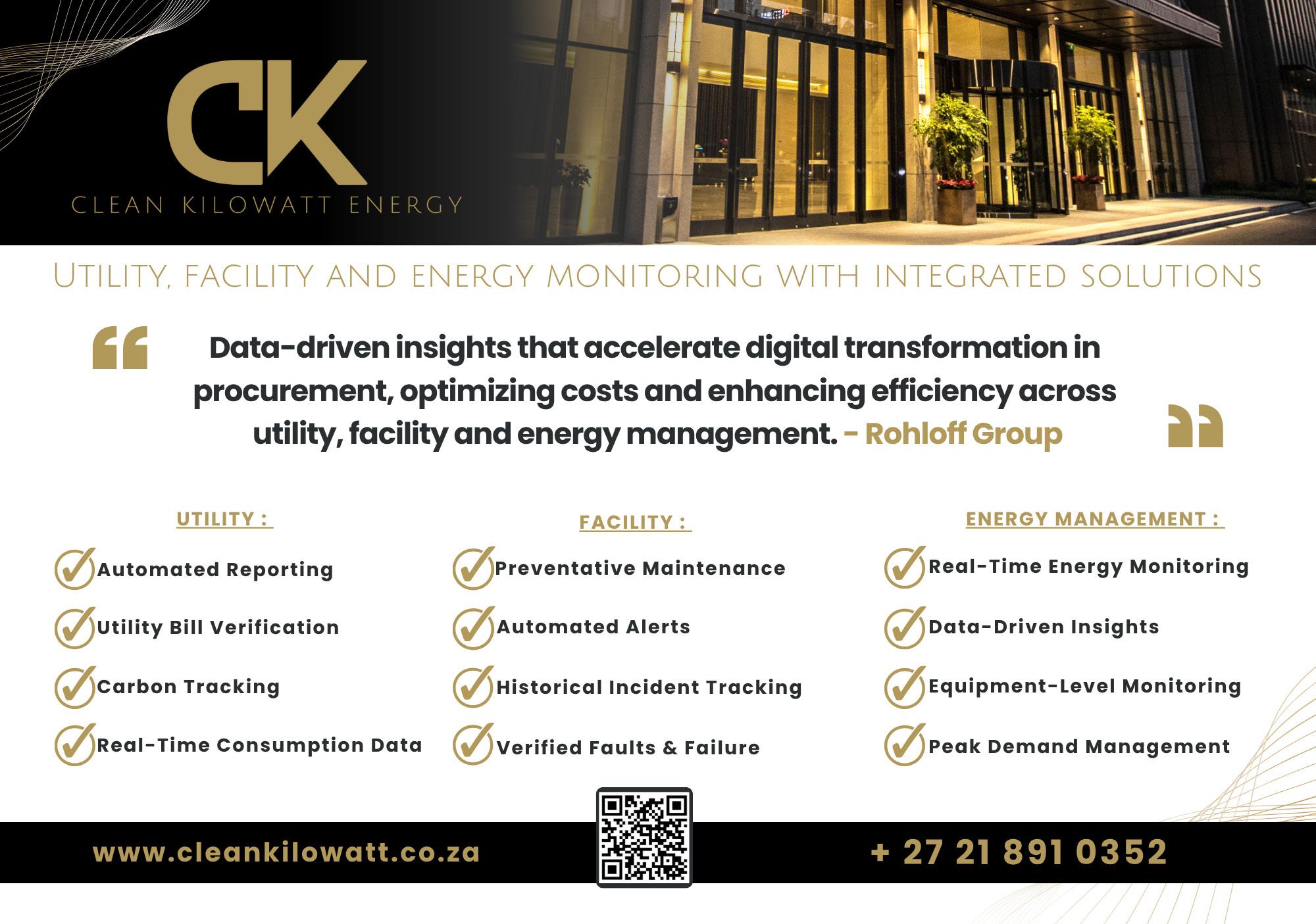
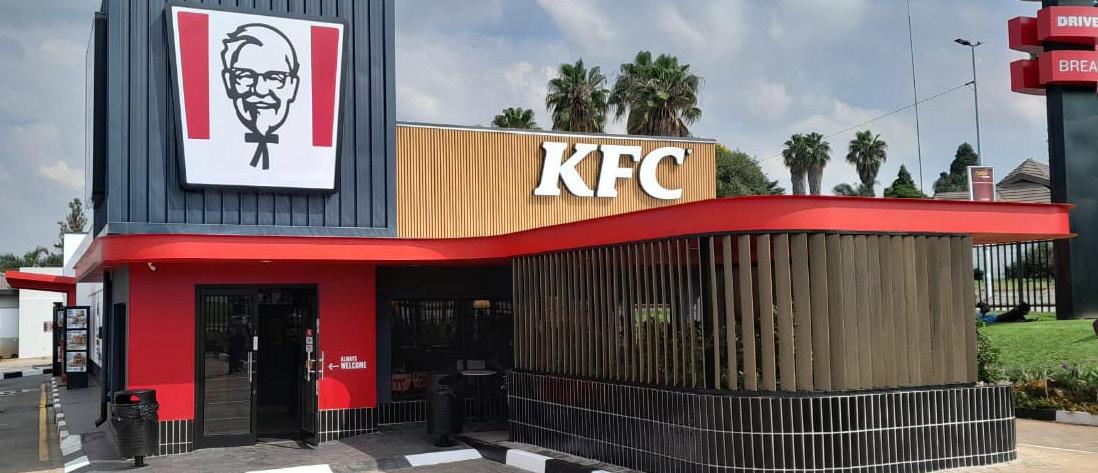
Sustainability is becoming increasingly important in supply chain management. How is Rohloff Group integrating sustainable practices into its procurement processes, and what initiatives have been most impactful?
Sustainability in procurement isn’t a buzzword for us, it’s a responsibility. At the Rohloff Group, we understand that our decisions today shape the environmental and operational landscape of tomorrow. The scale of our procurement gives us the power, and the duty, to make more sustainable choices.
We don’t just buy, we also sell, and we do so responsibly. One of our most impactful sustainability initiatives is the structured resale of our used cooking oil to an approved partner who converts it into biodiesel. This not only ensures compliance and safe disposal but also contributes to the circular economy by turning waste into renewable energy.
Waste management is another key focus. We work with registered and vetted partners to discard waste responsibly and legally, ensuring environmental compliance across all regions in which we operate. Whether it’s old assets, packaging materials, or general waste from operations, we prioritise safe and traceable disposal methods.
Our proactive maintenance and asset tracking system via Infraspeak enables us to reduce unnecessary replacements by extending the life of equipment through timely repairs, helping both the environment and our bottom line. Additionally, when equipment from remodels or relocations can be salvaged, we refurbish and repurpose it, further reducing landfill waste.
In our warehouse and logistics function, we’ve consolidated deliveries to reduce fuel consumption and emissions, while also engaging suppliers who support energy-efficient, locally manufactured, and recyclable solutions.
Sustainability is embedded in how we think and operate. For us, procurement is not only about cost and speed, it’s also about making smart, long-term, environmentally responsible decisions that keep our stores and our planet running smoothly.
Rohloff Group was recognised for the ‘Best Use of Digital Technology’ at the CIPS Africa Conference. Can you elaborate on how digital tools are being utilised in procurement to enhance efficiency and transparency?
Digital transformation is at the heart of our procurement evolution at Rohloff Group, not as a trend, but as a strategic enabler of efficiency, visibility, and impact. We were honoured to be recognised at the CIPS Africa Conference in 2024 for ‘Best Use of Digital Technology’, and we’re proud to share that we’ve been named finalists in the 2025 CIPS Excellence in Procurement and Supply Awards for Best Collaborative Teamwork Project, Procurement Team of the Year, Large Organisation, and Best Use of Digital Technology.
These nominations are a reflection of how we’ve leveraged digital tools to build a smarter, faster, and more responsive procurement environment, one that directly supports our KFC stores and broader commercial operations.
Last year, we submitted our Infraspeak integration, a digital maintenance and asset management platform that allows us to track, plan, and analyse all repairs and maintenance activities. This has empowered us to transition from reactive to proactive procurement, resulting in cost savings, extended asset life, and reduced downtime across the board.
This year, we’ve taken it a step further by entering with the Clean Kilowatt energy management system. This tool is a game-changer, giving us real-time data on what every piece of equipment in a store consumes in energy, and the ability to automate switch-off routines for equipment that doesn’t need to be running. It’s not just smart, it’s sustainable, helping us reduce unnecessary consumption and take a major step toward environmental accountability.
Together, these tools have redefined how we measure performance, manage supplier compliance, and make strategic decisions. From transparent audit trails to automated reporting, we’ve built a procurement system that’s digitally empowered, operationally agile, and future-focused. At Rohloff Group, digital procurement isn’t just a support function, it’s the engine behind consistency, cost control, and continuous improvement.

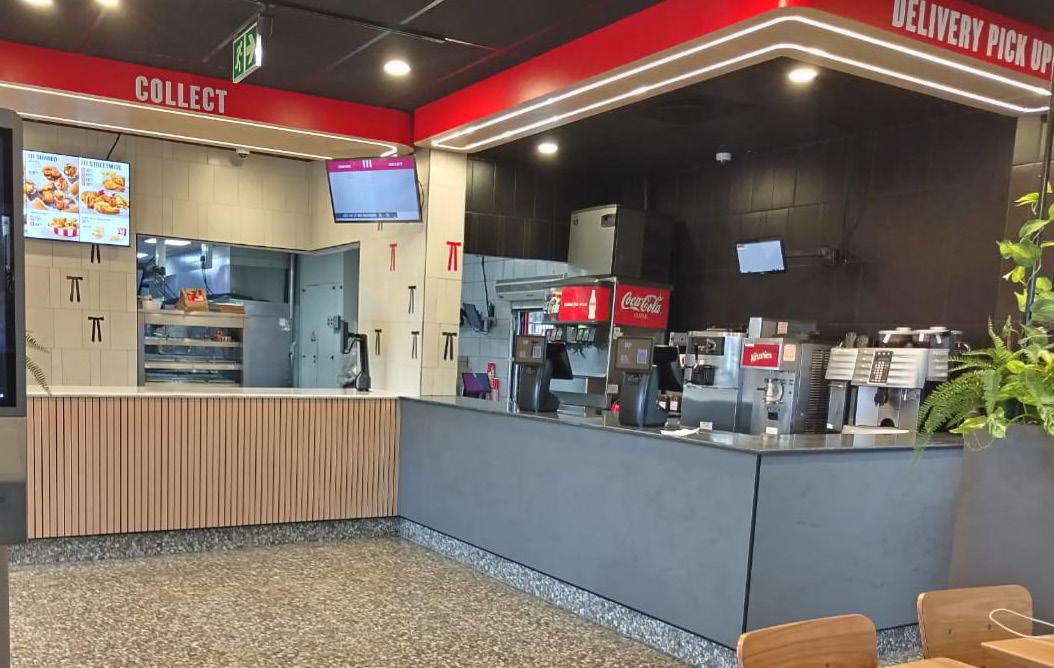
Building strong supplier relationships is crucial in the food service industry. What strategies do you employ to maintain robust partnerships with suppliers, ensuring quality and costeffectiveness?
Building strong, enduring supplier relationships is critical in the food service industry, where reliability, quality, and cost precision are non-negotiable. At Rohloff Group, we treat suppliers not just as vendors, but as strategic partners aligned with our brand promise and customer-first culture. We segment our suppliers based on spend, criticality, and mutual value potential. For our most strategic partners, we have dedicated relationship managers and executive sponsorship in place, supported by a regular governance cadence that spans procurement, operations, quality, and logistics. This structure ensures transparency, provides clear escalation paths, and drives accountability across our supply chain.
Open communication is key to maintaining strong partnerships. We share our short-, mid-, and long-term goals with suppliers, aligning them with our plans for expansion, sustainability, and quality improvement. In return, we welcome visibility into their roadmaps and capabilities, enabling mutual growth and continuous optimisation. This level of strategic alignment fosters trust and innovation, ensuring suppliers are equipped to anticipate our needs and offer proactive solutions.
To ensure accountability and encourage collaboration, we conduct joint performance reviews using balanced scorecards that measure quality, delivery, pricing, sustainability, and innovation. These sessions allow for open feedback, identify areas for improvement, and promote shared success. We also run regular supplier summits and review meetings, structured forums where we explore innovation ideas, performance insights, and future opportunities together.
Transparency plays a vital role in supplier engagement. We share demand forecasts and asset usage data, captured through systems like Infraspeak and Clean Kilowatt, to help suppliers plan ahead and support our efficiency goals. Through continuous feedback loops, suppliers are encouraged to suggest improvements and efficiency opportunities, which we review and implement jointly where appropriate.
Ethical standards and sustainability alignment are non-negotiable. We only engage with suppliers who meet our compliance expectations and, where required, hold relevant certifications. We also provide training support where needed and make supplier selection decisions based on shared values, not just pricing.
Importantly, we make a point to recognise and celebrate supplier contributions, whether through success stories, public acknowledgements, or collaboration awards. This builds goodwill and encourages further investment from our partners in innovation, reliability, and sustainability initiatives. By focusing on collaboration over transaction, transparency over ambiguity, and shared success over one-sided gains, our supplier relationship approach builds trust, resilience, and long-term value, helping us consistently deliver the quality and service expected at every Rohloff-run KFC store.
Digital transformation is at the heart of our procurement evolution at Rohloff Group, not as a trend, but as a strategic enabler of efficiency, visibility, and impact
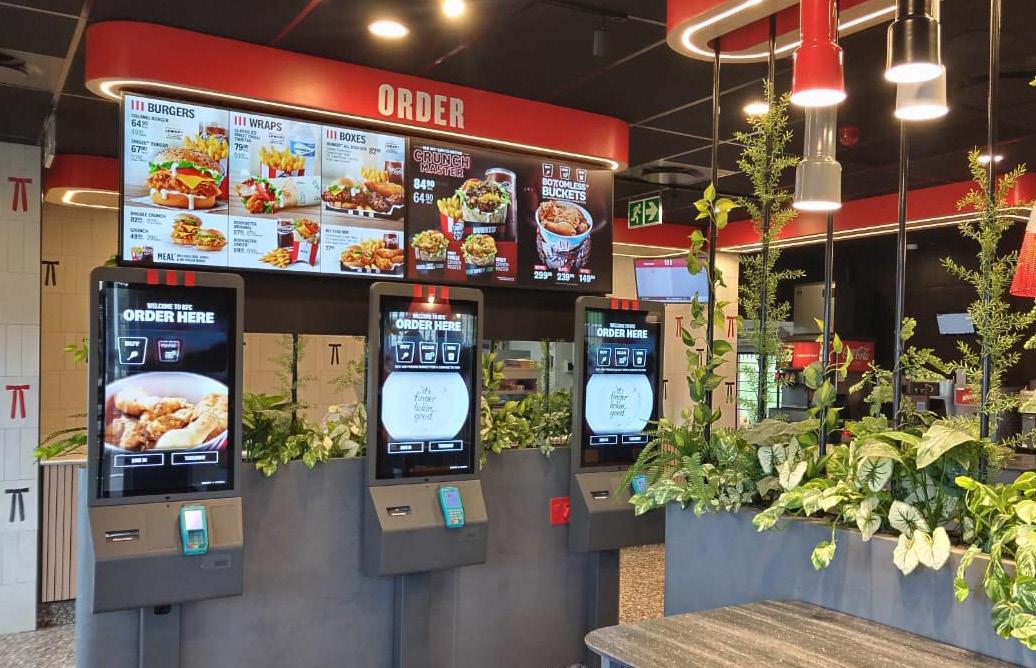
Given the complexities of the quick-service restaurant industry, how does your procurement team manage risks related to supply chain disruptions to ensure continuity and resilience?
In the quick-service restaurant industry, where operational uptime and customer satisfaction are paramount, risk management isn’t a function, it’s a mindset. At Rohloff Group, we operate close to 100 KFC stores, and our procurement team plays a critical role in ensuring continuity, resilience, and brand protection.
It’s important to note that Food & Paper procurement is governed directly by the brand holder, YUM, to ensure global compliance with KFC’s strict food safety and quality standards, this is how the “perfect taste” is guaranteed in every meal. Our role as the franchisee lies in everything else that keeps the restaurant running: equipment, spares, maintenance services, projects, and day-to-day operational supplies, and this is where risk truly comes into play.
We actively manage risk through a diversified supplier network and centralised warehousing. This allows us to hold critical spares, smallwares, and backup stock in Cape Town, with plans to scale the same capability to Johannesburg. By building this localised stockholding model, we can buffer against supplier delays, load shedding, and regional disruptions. Our asset management approach has also shifted from reactive to proactive, thanks to the implementation of Infraspeak. By tracking asset history and performance trends, we can forecast potential failures, pre-source components, and reduce the risk of unplanned downtime, which is a major win for operational continuity.
Building strong, enduring supplier relationships is critical in the food service industry, where reliability, quality, and cost precision are non-negotiable.
Energy availability and cost are additional risks, especially in South Africa. Our Clean Kilowatt energy management system provides granular insight into how much energy each piece of equipment consumes, allowing us to automate switch-off routines and control energy loads. This not only reduces consumption but also helps prevent equipment failure or overload caused by power issues. Strong supplier relationships play a significant role in crisis resilience. Through long-term, trust-based partnerships, we are often prioritised for emergency deliveries or fast turnaround times. It’s not just about service-level agreements, it’s about mutual accountability and strong relationship capital. For store remodels, new builds, and project work, we mitigate risk by pre-qualifying vendors, managing timelines closely, and building buffers into lead times. This protects critical launch or reopening dates and ensures smooth execution even in high-pressure environments.
Finally, our decision-making is increasingly data-led. With over two years of maintenance and procurement data captured, we are able to model risk, spot trends, and make strategic calls based on real-time store-level intelligence. Whether facing price fluctuations, delivery failures, or part shortages, we aren’t operating in the dark, we’re guided by insight.
At Rohloff Group, risk management in procurement means being hands-on, data-smart, and peopledriven. We work in the background so our restaurants never stop delivering the experience our customers expect, no matter what happens in the supply chain.
Balancing cost efficiency with quality is vital in procurement. What innovative cost-saving strategies have you implemented without compromising on the quality of products and services?
Balancing cost and quality in procurement is a constant exercise in strategy, creativity, and discipline. At the Rohloff Group, we don’t take shortcuts, we engineer long-term solutions that protect brand standards, ensure operational continuity, and reduce spend across our restaurants.
One of our most impactful strategies has been shifting from fragmented purchasing to consolidated, group-wide procurement. By negotiating fixed rates and buying in bulk for items such as equipment spares, smallwares, and maintenance consumables, we’ve achieved significant savings while improving supplier service levels and reducing price volatility.
We also run a refurbishment programme that allows us to recondition and repurpose assets, including fryers, warmers, counters, and signage, for use in future stores. Rather than scrapping valuable equipment during remodels or relocations, we extend the lifespan of these assets, dramatically cutting capital expenditure and reducing landfill waste and downtime.
Bringing our warehouse and logistics operations in-house has also been a major cost-saving breakthrough. By removing third-party markups and gaining direct control over stockholding and deliveries, we’ve significantly improved distribution efficiency, reliability, and responsiveness, all while reducing costs.
Our digital maintenance strategy, powered by Infraspeak, enables us to track asset history and maintenance spend across our stores. This visibility allows us to plan interventions, prevent emergency callouts, and identify high-cost or high-failure items. As a result, we’ve been able to reduce unnecessary spend and extend the life of critical equipment.
Energy consumption is another key focus. With the rollout of Clean Kilowatt, we now monitor and control energy usage per device across our network. Automated switch-offs for non-essential equipment have allowed us to cut energy costs, particularly in stores facing high utility bills or unreliable power supply. It’s a smart, sustainable solution with immediate ROI.
Finally, we work closely with suppliers to lock in annual rates with clearly scoped deliverables. This has helped protect us against inflation-driven increases and eliminated ambiguous extras. With structured SLAs in place, we ensure consistent service at the agreed value.
Ultimately, our cost optimisation philosophy is simple: never compromise on quality, optimise everything around it. By combining data, systems, supplier partnerships, and operational insight, we’ve built a procurement approach that enables growth, stability, and savings, all at once.
The food service sector is subject to stringent regulations. How does the procurement team ensure compliance with health and safety standards while maintaining operational agility?
In the food service sector, particularly within franchise operations like KFC, regulatory compliance is non-negotiable due to strict health, safety, and brand standards. At the Rohloff Group, our procurement team ensures full compliance while maintaining operational agility through a multilayered approach that blends structure, technology, and collaboration.
We operate under the rigorous brand standards of Yum! Brands, which incorporate all relevant health and safety regulations. These standards form the baseline for every procurement decision, ensuring that each product, ingredient, and service meets or exceeds the necessary regulatory requirements. To support this, we partner with a carefully vetted list of preferred suppliers who hold the appropriate compliance credentials and certifications. This includes adherence to local and international food safety protocols, such as HACCP and ISO standards, which ensures consistency, safety, and legal alignment across our supplier base.
Our team conducts regular supplier audits and compliance checks to verify that standards are being maintained. This proactive monitoring allows us to identify and resolve potential issues early, reducing risk and safeguarding quality across our nearly our stores.
Cross-functional collaboration is key to remaining agile. Procurement works closely with operations, quality assurance, and legal teams to stay ahead of regulatory changes and adapt sourcing strategies accordingly. This alignment ensures swift decision-making without compromising compliance.
We also leverage technology to manage and monitor compliance. Systems like Infraspeak help track asset and maintenance management, while Sage Evolution supports financial oversight and contract compliance. Real-time data and analytics give us early visibility into risk areas, enabling faster, more informed corrective actions.
Ongoing training ensures our team remains well-versed in evolving standards and brand requirements. We maintain clear communication channels with both suppliers and internal teams to address compliance challenges promptly and effectively.
It’s also worth noting that while food and paper products are controlled centrally by Yum! to guarantee brand consistency and food safety, our negotiations focus on pricing and service levels, always within the strict confines of approved specifications. This ensures compliance is never compromised in pursuit of cost efficiency.
Through this structured, proactive approach, the procurement team upholds regulatory and health standards as a foundation, while maintaining the flexibility and responsiveness required in a fastpaced operational environment.
What emerging trends do you foresee impacting procurement in the quick-service restaurant industry, and how is Rohloff Group preparing to adapt to these changes?
The quick-service restaurant (QSR) industry is evolving rapidly, and procurement must stay ahead of emerging trends to maintain competitive advantage, cost-efficiency, and compliance. At Rohloff Group, we are proactively adapting to several key shifts shaping the future of procurement.
Digital transformation and data analytics are redefining how we manage procurement. The increasing use of digital platforms and advanced analytics tools enables better forecasting, supplier performance tracking, and spend visibility. We leverage systems like Infraspeak and Sage Evolution to gather real-time data on repairs, maintenance, and purchasing patterns. This data-driven approach allows us to optimise inventory, predict maintenance needs, and uncover cost-saving opportunities before they become challenges.
Sustainability and ethical sourcing are also growing priorities, driven by consumer expectations and regulatory pressures. We are embedding sustainability criteria into supplier evaluations and procurement decisions, prioritising partners who demonstrate environmental stewardship, waste reduction, and fair labour practices. These efforts align closely with Yum! Brands’ global sustainability commitments and our responsibility as a franchise operator.
The post-pandemic landscape has further highlighted the importance of supplier collaboration and diversified sourcing. Strong, trusted supplier relationships and agile sourcing strategies are essential to navigating supply chain disruptions. At Rohloff Group, we continue to invest in long-term partnerships that support flexibility, continuity, and innovation.
Process automation is another area gaining momentum. By automating tasks such as tendering, invoicing, and reporting, we can reduce manual errors, speed up procurement cycles, and free our teams to focus on more strategic initiatives. We are actively exploring automation tools to streamline workflows and drive greater efficiency.
As regulatory frameworks and brand standards grow more complex, procurement must remain deeply embedded in compliance processes. Our integrated systems and cross-functional collaboration ensure that every procurement activity, from specification through to delivery, aligns with both internal policies and external requirements, without compromising operational agility. There is also an increasing trend toward localisation to reduce lead times, logistics costs, and environmental impact. We’re exploring opportunities to expand local sourcing within South Africa and neighbouring regions, balancing cost, quality, and sustainability while strengthening our supply chain resilience.
Finally, innovation in foodservice equipment is opening up new procurement categories. From energyefficient appliances to smart kitchen technologies, these advancements require updated technical knowledge and proactive engagement with suppliers. Rohloff Group stays closely connected with equipment vendors and brand experts to evaluate and adopt these innovations, helping improve store efficiency and sustainability.
By anticipating and embracing these trends, Rohloff Group continues to position itself as a procurement leader in the QSR space, one that balances cost, quality, compliance, and sustainability to support long-term growth and operational excellence.
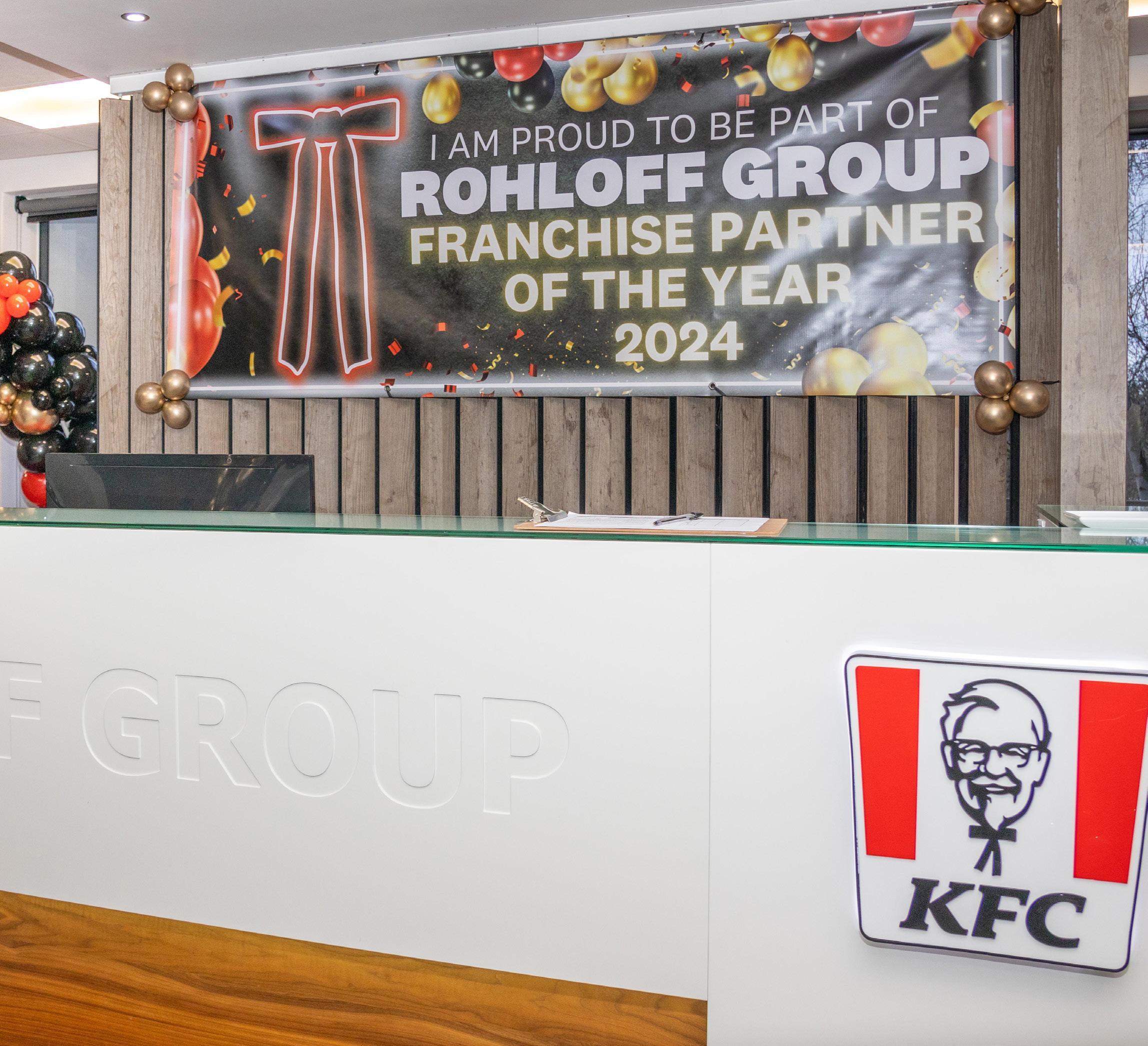
Based on your experience, what advice would you offer to individuals aiming to advance their careers in procurement within the food service industry? What skills and experiences are essential for success in this field?
Having worked in procurement for over eight years within the fast-paced, highly regulated quickservice restaurant (QSR) industry, here’s the advice I’d offer to those looking to build a successful career in this field.
First and foremost, understand the business and the brand. Procurement in food service isn’t just about buying, it’s about supporting the brand’s promise and ensuring a consistent customer experience. Learn the operational challenges of running QSR stores and the strict standards set by brand owners like Yum! Brands. This context will help you make decisions that drive real value while maintaining quality and compliance.
Strong supplier relationships are equally essential. The best results come from suppliers who see you as a strategic partner, not just a customer. Invest time in building trust, understanding their challenges, and working collaboratively, it makes a significant difference in both cost and service outcomes.
Being comfortable with data and technology is also critical. Tools like Infraspeak and Sage Evolution help track spend, contracts, and asset performance. A data-savvy approach allows you to forecast needs, identify savings opportunities, and make informed, proactive decisions that support business agility.
Adaptability is another must-have. The QSR industry moves quickly, and you’ll often face unexpected issues, from supply chain disruptions to last-minute regulatory updates. The ability to think on your feet and provide solutions under pressure will set you apart.
Strong communication and collaboration skills are vital. Procurement sits at the centre of multiple functions, suppliers, operations, finance, and compliance. Clear, confident communication helps align stakeholders, drive accountability, and keep projects on track.
You also need to master negotiation and cost optimisation. Successful procurement professionals understand that value goes beyond price, it includes quality, reliability, service, and timing. Learning to balance cost savings with brand standards is a skill that grows with experience. Compliance awareness is crucial, especially in food service. Understanding regulatory requirements and managing supplier performance protects both customer safety and brand integrity. Be proactive, detail-focused, and solution-oriented.
Finally, never stop learning. The procurement landscape is constantly evolving, from sustainability expectations to digital innovations. Stay curious, seek mentorship, and invest in continuous development to remain relevant and impactful in your role.
My final thought: Procurement in the food service industry is a challenging yet rewarding career path. It requires a unique blend of business acumen, relationship-building, technical knowledge, and emotional intelligence. Those who embrace these qualities won’t just succeed, they’ll become invaluable to their organisations

Rohloff Group has grown to be one of the largest KFC franchises in Africa, boasting a high performance culture focused on the ultimate guest experience, to #SatisfyEveryCustomer.
